Marina Sena – TOKITÔ Lyrics
[Letra de “TOKITÔ”]
[Refrão: Marina Sena, Gaia]
Se eu for, eu vou de madrugada
Você vai ver a hora, nem vou bater na porta
Eu vou que tô que tô, eu vou de madrugada
Você vai ver a hora, nem vou bater na porta
Eu vou que tô que
Vou que tô que, vou que tô que
Vou que tô que, vou que tô que
[Verso 1: Gaia]
[?] ti fai amare
Sembri più forte degli altri ma
Ora dimmi che sei mia
Dimmi che non vai via
Fammi vivere
Quest’istante mi accende
Sarai tu che vorrei di più per noi
Ficamos sós
Que seja agora ou pra sеmpre
[Refrão: Marina Sena]
Se eu for, еu vou de madrugada
Você vai ver a hora, nem vou bater na porta
Eu vou que tô que tô, eu vou de madrugada
Você vai ver a hora, nem vou bater na porta
Eu vou que tô que
Vou que tô que, vou que tô que
Vou que tô que, vou que tô que
Só vim na party curtir
Fica à minha espera, eu ‘tou a sair daqui
Madrugada, a gente só ri
Livre, ninguém pode mandar em mim
‘Tou que ‘tou
Vais me ver a rebolar low, bem low
Eu vou dar um show, vais pra onde eu vou
Não interessa quem bazou ou quem chegou
Vai receber love, I just want some love from you
Just want some love from you, eu quero sentir
Tu vais sempre ouvir falar de mim, uh[Refrão: Marina Sena, Gaia]
Se eu for, eu vou de madrugada
Você vai ver a hora, nem vou bater na porta
Eu vou que tô que tô, eu vou de madrugada
Você vai ver a hora, nem vou bater na porta
Eu vou que tô que
Vou que tô que, vou que tô que (Tô)
Vou que tô que, vou que tô que
Marina Sena – TOKITÔ (feat. Gaia & Nenny)
Song Details
- Title: TOKITÔ
- Artists: Marina Sena, Gaia, Nenny
- Genre: Brazilian Pop, Latin Pop, Afrobeat Influence
- Release Year: 2023
- Language: Portuguese & Italian
- Themes: Freedom, Spontaneity, Sensuality, Independence
- Mood: Playful, Energetic, Confident
In-Depth Lyric Analysis
Refrain (Marina Sena & Gaia)
- “Se eu for, eu vou de madrugada / Você vai ver a hora, nem vou bater na porta”
The song starts with an air of spontaneity and mystery. The speaker suggests that if she leaves, it will be late at night, and she won’t even announce her arrival. This suggests a sense of control and independence, showing that she acts on impulse and follows her own desires. - “Eu vou que tô que tô”
This phrase is playful and rhythmic, commonly used in Brazilian Portuguese to indicate readiness, energy, or excitement. It reinforces the idea that the speaker is in the mood to go out, have fun, and live on her own terms.
Verse 1 (Gaia – in Italian)
- “[?] ti fai amare / Sembri più forte degli altri ma” (You make yourself loved / You seem stronger than the others but…)
Gaia’s verse brings an Italian perspective into the song, adding a layer of sensuality and admiration. She acknowledges the strength of the other person but asks for a declaration of love, hinting at a mix of desire and vulnerability. - “Dimmi che sei mia / Dimmi che non vai via” (Tell me you are mine / Tell me you’re not leaving)
This contrasts with Marina’s part, introducing longing and attachment. While Marina’s section emphasizes independence, Gaia’s lyrics bring in an element of romantic insecurity, wanting assurance of commitment. - “Que seja agora ou pra sempre” (Let it be now or forever)
This phrase reflects the urgency and intensity of love, aligning with the theme of living in the moment while also hinting at the desire for permanence.
Verse 2 (Nenny)
- “Só vim na party curtir / Fica à minha espera, eu ‘tou a sair daqui” (I just came to the party to have fun / Wait for me, I’m leaving here)
Nenny’s verse adds a party vibe, reinforcing the themes of freedom and fun. The lyrics emphasize a carefree attitude—she’s not there to be tied down, just to enjoy herself. - “Madrugada, a gente só ri / Livre, ninguém pode mandar em mim” (At dawn, we just laugh / Free, no one can control me)
This line echoes the central theme of independence. The night symbolizes a time of freedom and possibility, and Nenny makes it clear that she is in control of her own destiny. - “Vais me ver a rebolar low, bem low / Eu vou dar um show” (You’ll see me winding low, really low / I’m going to put on a show)
This highlights self-confidence and sensuality. She’s embracing her power, not only in dance but in her presence—she’s the center of attention, and she knows it. - “Vai receber love, I just want some love from you” (You’ll receive love, I just want some love from you)
Even though the song is largely about independence, this line suggests that there’s still a craving for affection. However, it seems more casual than Gaia’s verse—it’s about the thrill of the moment rather than commitment.
Song Meaning
“TOKITÔ” is a song about living in the moment, embracing freedom, and being in control of one’s own desires. It mixes elements of sensuality, confidence, and spontaneity, showing different perspectives on relationships and nightlife.
- Marina Sena portrays a carefree, independent woman who follows her impulses and refuses to be tied down.
- Gaia introduces a contrasting emotional depth, yearning for reassurance in love.
- Nenny reinforces the theme of self-empowerment, focusing on having fun and staying unattached.
The song celebrates the power of choice—whether it’s to love, leave, party, or be alone.
Frequently Asked Questions (FAQs)
- What does “TOKITÔ” mean?
The phrase “tokitô” doesn’t have a direct meaning in Portuguese or Italian. It’s likely used as a rhythmic, playful expression, enhancing the song’s energy. It could also be a phonetic play on the phrase “tô que tô,” which in Brazilian slang means “I’m hyped” or “I’m feeling it.” - What is the main message of the song?
The song celebrates freedom, spontaneity, and self-confidence. It tells the story of someone who lives on their own terms, whether in love, nightlife, or personal choices. - Why does the song have lyrics in Italian?
Gaia, an Italian artist, adds her verse in Italian, making the song more multicultural and global. Her verse also introduces a different emotional perspective, adding contrast to Marina Sena’s carefree attitude. - What does “Eu vou que tô que tô” mean?
This phrase is a playful way to express readiness and excitement, similar to saying “I’m pumped up” or “I’m going all in.” - Is this song about love or partying?
It’s about both. The lyrics blend themes of romantic independence, attraction, and nightlife fun, allowing listeners to interpret it in their own way.

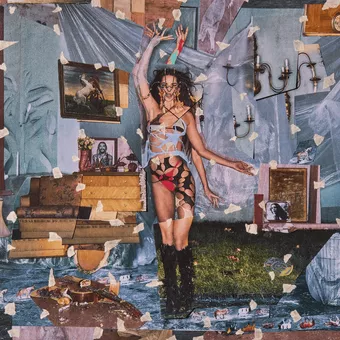
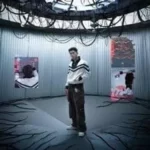
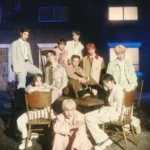
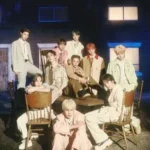
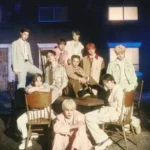
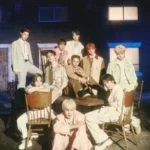
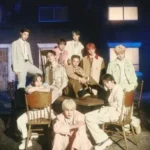

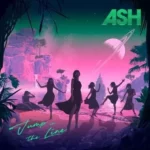

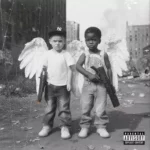





Leave a Reply